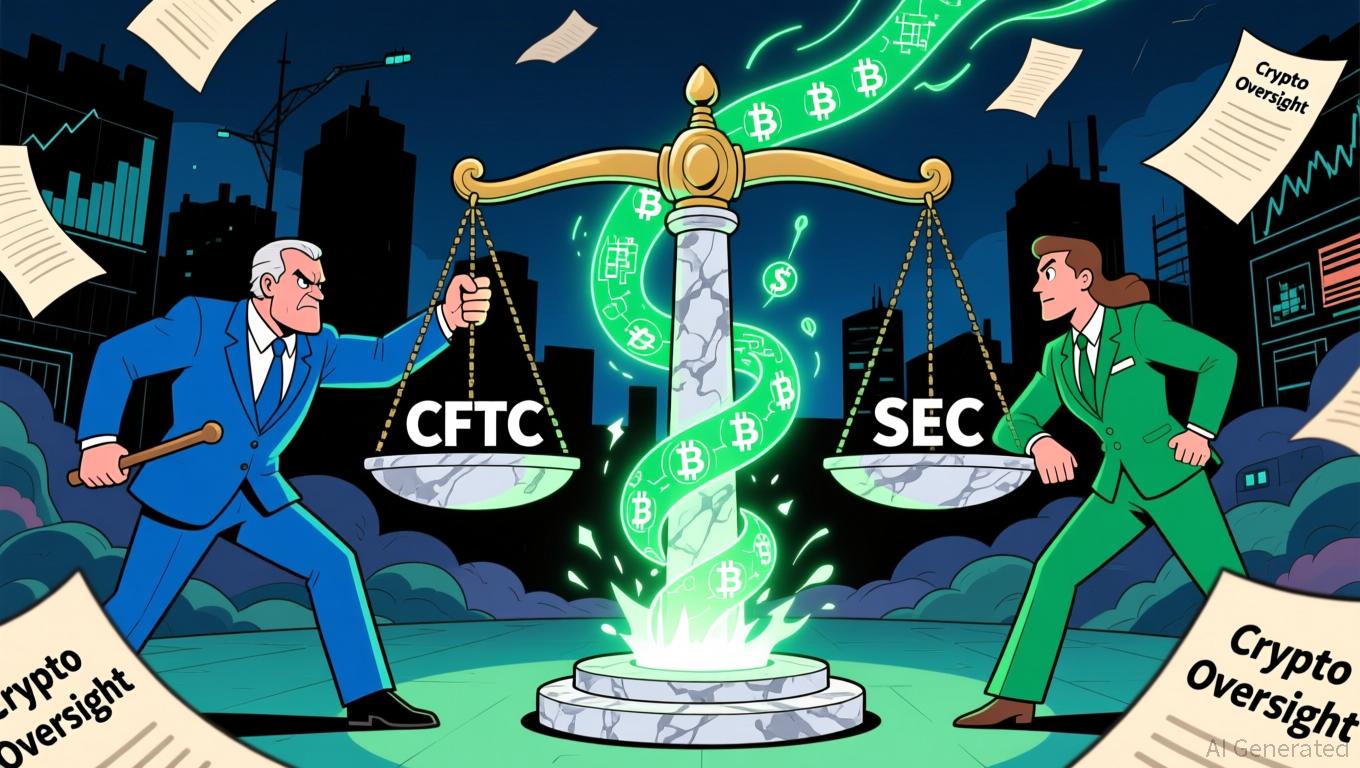Bitcoin News Update: CFTC's Broader Role in Crypto Regulation Ignites Discussion on Clearer Rules
- U.S. lawmakers propose expanding CFTC's crypto oversight via a bill reclassifying spot trading, diverging from SEC's enforcement approach. - Harvard University invests $443M in BlackRock's IBIT ETF, reflecting institutional confidence in crypto as a legitimate asset class. - DeFi projects like Mutuum Finance raise $18.7M in presales, leveraging regulatory momentum and transparent on-chain credit systems. - RockToken's infrastructure-backed crypto contracts attract long-term investors with structured yiel
The regulatory environment for cryptocurrencies in the United States is experiencing a significant transformation as legislators and industry leaders push for the Commodity Futures Trading Commission (CFTC) to take on a more expansive role in overseeing digital assets. This shift is exemplified by a new crypto market structure bill put forward by Senators John Boozman and Cory Booker, which aims to place spot digital commodity trading under the CFTC’s authority, moving away from the Securities and Exchange Commission’s (SEC) current enforcement-centric strategy.

There is also a notable rise in institutional interest in cryptocurrencies, with major entities such as Harvard University’s $55 billion endowment making significant investments. The endowment recently revealed a $443 million holding in BlackRock’s
RockToken, a New Zealand-based platform specializing in infrastructure-backed crypto investment contracts, is also attracting attention from long-term investors. The company offers a range of plans—from the entry-level “Genesis Pass” to the premium “Whale Reserve” contracts—enabling users to earn yields on Bitcoin,
Market trends are pointing toward cautious optimism. The conclusion of a 43-day U.S. government shutdown in November 2025 brought temporary stability to crypto markets, with Bitcoin recovering above $102,000. Experts attribute this rebound to renewed regulatory clarity as both the SEC and CFTC resumed their activities. Blockchain data also shows that long-term investors are accumulating assets, with over $1.3 billion in Ethereum acquired by large holders, indicating sustained confidence in crypto despite short-term price swings
This regulatory evolution is not without its hurdles. Some critics caution that overlapping responsibilities between the SEC and CFTC could lead to regulatory confusion, though advocates believe the proposed legislation will create a more streamlined oversight process. Bernstein analysts, however, maintain that the U.S. is well-placed to emerge as a global leader in crypto, citing its robust infrastructure and flexible regulatory approach. Together with increased institutional involvement and DeFi advancements, these factors could reshape the role of crypto in the international financial system
Disclaimer: The content of this article solely reflects the author's opinion and does not represent the platform in any capacity. This article is not intended to serve as a reference for making investment decisions.
You may also like
Ethereum Moves 3x Faster Than Bitcoin, Study Says

Is Aster (ASTER) Poised for a Breakout? Key Bullish Pattern Formation Suggests So!

Newly Released Documents Detail Epstein’s Influence on Bitcoin’s Early Development

Venezuela’s Hyper-Adoption: How 10% of the Population Now Uses Crypto for Survival
